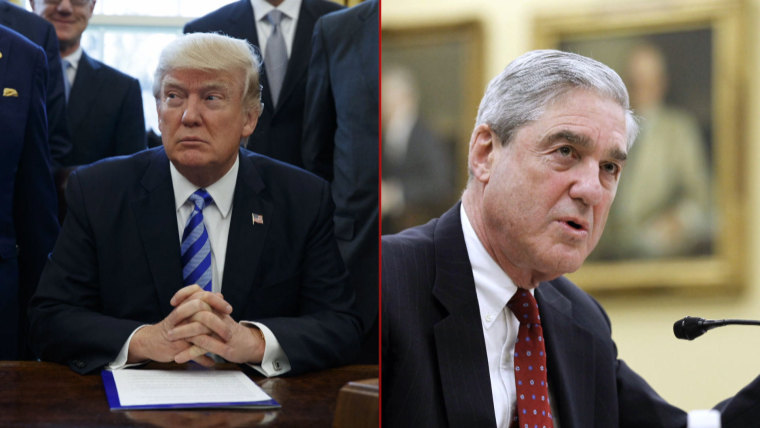An ongoing legal process has been unfolding for quite a while in which Congress has sought grand jury materials from former Special Counsel Robert Mueller's investigation. There's some modern precedent for this: Congress sought and obtained grand jury materials from the Watergate investigation, which helped create what became known as the "roadmap" for lawmakers.
A lower court ruled in lawmakers' favor and instructed the Justice Department to turn over the materials. The appeal of that case is currently pending with a federal appeals court, and as the Associated Press reported, the judges on the panel were presented with an interesting piece of information.
The House of Representatives' top lawyer told a federal appeals court Monday that the House is investigating whether President Donald Trump lied to special counsel Robert Mueller, and the attorney urged the judges to order the release of still-secret material from Mueller's investigation.Two of the three judges who heard arguments at the Court of Appeals for the D.C. Circuit -- Judith Rogers, a Clinton appointee, and Thomas Griffith, an appointee of George W. Bush -- seemed prepared to order at least some of the material sought by the House to be turned over.House General Counsel Douglas Letter told the judges that the need for the still-secret material redacted from the Mueller report is "immense" because it will help House members answer the question, "Did the president lie? Was the president not truthful in his responses to the Mueller investigation?" in his written responses to the probe.
As regular readers likely recall, Trump initially said he was eager to sit down for an interview with Mueller and investigators from the special counsel's office, but the president's attorneys were vehemently opposed to the idea, concerned that Trump would be unable to get through the Q&A without perjuring himself.
Instead, the president submitted written responses, though Trump's answers were deemed "inadequate" -- and in some cases, "incomplete or imprecise" -- by Mueller and his team.
According to the U.S. House's lawyer, lawmakers are pulling on that thread, concerned that the president may have lied to federal investigators.
And with an impeachment inquiry underway, that's no small detail.
It's worth emphasizing, in case this isn't already obvious, that this line of inquiry may not amount to much. Maybe Trump didn't lie to Mueller. Maybe he did, but the evidence will be insufficient. Maybe the evidence will be sufficient, but the matter won't be included among the possible articles of impeachment.
But the fact that the U.S. House's top lawyer presented information about this investigation to the appellate bench today further increases pressure on those judges to make the grand jury materials available to lawmakers as part of their investigation.
For that matter, there's already reason to wonder whether the president really did lie in his written responses, including Trump's assertion that he didn't remember receiving advance word on WikiLeaks disclosures or discussing WikiLeaks with longtime associate Roger Stone -- a claim that now appears quite dubious.
Watch this space.
Update: If Trump wants to distance himself from his written responses to Mueller, that may be difficult. One year ago this week, the president told reporters, in response to the special counsel's Q&A, “My lawyers aren’t working on that. I’m working on that. I write the answers. My lawyers don’t write answers, I write answers. I was asked a series of questions. I have answered them very easily. Very easily.... The questions were very routinely answered by me. By me. Okay?”
